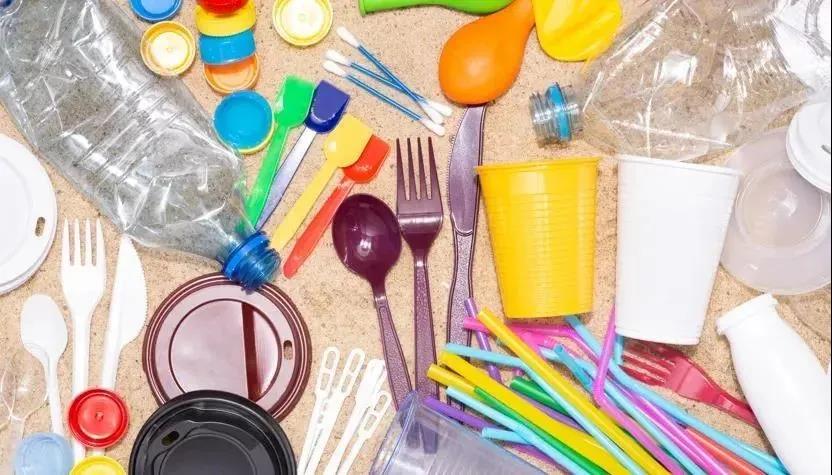Globally, the "plastic ban" is one of the most vocal environmental protection issues in recent years, as the accumulation of plastic not only causes land pollution, but also poses a threat to marine life. We are seeing more and more marine animals being strangled by easy to pull ring Leuke's body resulting in deformation or death by accidental ingestion of plastic bags.
Canada is taking the lead in advocating plastic reduction. Starting next January 1, tough measures will be taken against disposable items within the jurisdiction of the city of Vancouver.
Businesses will be banned from providing plastic shopping bags to customers and will be required to charge at least $0.15 cents for disposable paper bags, with the fee increasing to $0.25 in 2023. Charge a minimum of $1 for reusable shopping bags, growing to $2 by 2023.
Similarly, people who are used to drinking coffee every day will pay more. A minimum fee of $0.25 will be charged for each disposable cup provided to customers. Companies will retain this new revenue to invest in reusable alternatives, while the new revenue also helps cover the cost of compliance with the charter.
Businesses are also required to submit an annual report to the City on the number of disposable items used as part of the business license renewal.
The city says more than 82 million disposable cups and 89 million plastic shopping bags were thrown in the garbage in Vancouver in 2018. Litter in streets and public places costs the city about $2.5 million a year.
As of March 27, 2022, the one-time material change measures within the City of Richmond will also be in full effect.
At a recent public meeting, the Richmond City Council approved a charter that bans all businesses from using foam food take-out containers, plastic straws and plastic shopping bags.

The bylaw will provide businesses with six months to transition to more environmentally friendly alternatives, with the actual implementation date beginning in September 2022. Under the bylaw, in addition to prosecution costs, fines for convictions start at $1,000 and can be up to $10,000 per violation.
In addition to the gradual implementation of measures for disposable items in Metro Vancouver, at the federal level, the government has indicated that Canadians will see final regulations during the year 2022. The regulations will be available for public comment in the coming weeks and then over a period of time.
The six types of single-use plastic items banned include single-use shopping bags, stir sticks, beverage carry rings, disposable tableware, straws, and food packaging that cannot be recycled.
Excluded from the ban: garbage bags, milk bags, fast food packaging, disposable personal care items and their packaging, beverage containers and lids, contact lenses and packaging, cigarette filters, items used in medical facilities, and personal protective equipment.
A key part of Canada's plan to achieve zero plastic waste by 2030 is to ban harmful single-use plastic products. According to Environment and Climate Change Canada, Canadians throw away 3 million tonnes of plastic waste each year, of which only 9 percent is recycled. This includes plastic bags, bottles and other items commonly used by the food and beverage industry.
In 2016 alone, 29,000 tonnes of plastic entered the environment as pollution, and single-use plastics account for most of the plastic waste polluting Canada's rivers, lakes and oceans.
The government says it can reduce greenhouse gas emissions by 1.8 million tons per year through changes in plastic waste management.
Yet it is the food service industry that will be most affected by the ban. The Canadian Restaurant Association, a non-profit association that advocates for members of Canada's food service industry, noted that five of the six items included in the ban are restaurant standbys.
Part of the problem stems from the difficulty of finding affordable alternative options. This is particularly challenging for independent restaurants. Not only are supply chain disruptions making it difficult to find sustainable alternatives to food service packaging, but restaurants in general continue to struggle to break even. According to the survey, half of the approximately 90,000 restaurants in Canada continue to be at risk of closing.
Restaurant stakeholders also expressed a desire to see a reasonable timeline for the ban's rollout and called for greater collaboration between associations such as Restaurants Canada and government members and product experts to guide the use of the best alternative materials.
In response, both Starbucks Canada and Tim Hortons have committed to phasing out the use of plastic straws across Canada and introducing paper straws as an alternative. To date, all 1,376 Starbucks stores in Canada and nearly 4,000 Tim Hortons stores are no longer using plastic straws.
Beginning this August, Walmart Canada has also implemented a pilot program to eliminate plastic checkout bags at 10 of its more than 400 stores nationwide. Customers at these locations will be able to check out with their own shopping bags or purchase reusable bags from the store.

